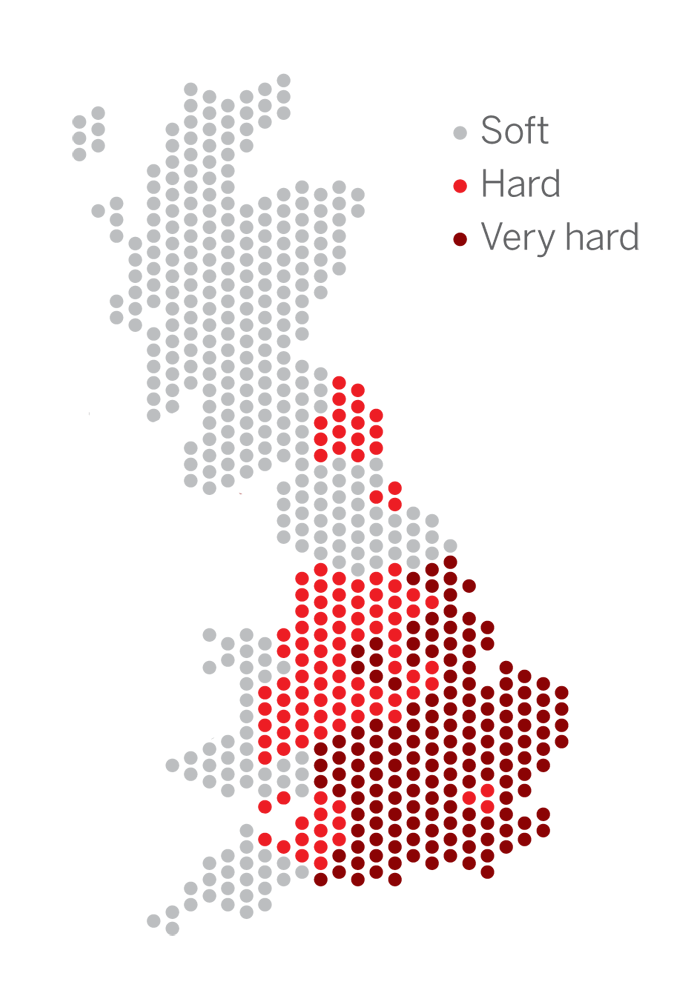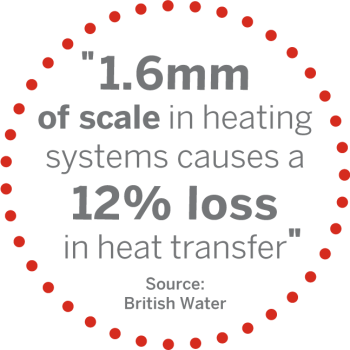Hard water is water that has high levels of calcium and magnesium compounds. Whilst not harmful to humans in drinking water, these compounds solidify when the water is heated, leaving limescale build up on surfaces.
This is most obvious on taps, shower heads and other fittings, but limescale can occur wherever hard water is heated. This can be inside pipework, on the heating element of dishwashers, washing machines, inside domestic kettles or commercial wall mounted kettles. Limescale can also wreak havoc in hot water systems and heating systems.
Roughly 65% of the UK is supplied with mains water that is classified as hard, as shown on this map. If you haven’t already done so, enter your postcode above to get a reading for your local water hardness.
Tell-tale signs include frequent breakdown of equipment that heats water, boilers that are noisy when firing, poor water pressure, and crusty build up around fixtures and fittings.


Many householders and facility managers don’t realise that they are paying more as a result of their hard water. Limescale can be expensive in a number of ways:
Sentinel Sumo is a high efficiency, non-electric water softener that fits perfectly on the sink (H x W x D) 492 x 235 x 475mm. It regenerates in as quick as 11 minutes and it is the perfect solution to protect fittings and appliances against scaling in hard water areas.
Sentinel SESI delivers no-fuss protection and pays for itself in 3-6 months in terms of energy bill savings. For commercial or non-domestic buildings, Sentinel KalGUARD comes in a wide range of sizes and can deliver an ROI in as little as 12 months.
Sentinel is a company with a clear goal: we offer water treatment products and services that provide the best lifetime protection for heating and hot water systems. Originally launched in the UK by Grace Dearborn in 1988 and subsequently a subsidiary of the leading multinational General Electric, Sentinel has operated independently since 2005, expanding its international reach and range of innovative solutions. As of 2021, Sentinel is owned by Aalberts N.V., and sits in the hydronic flow control cluster.
